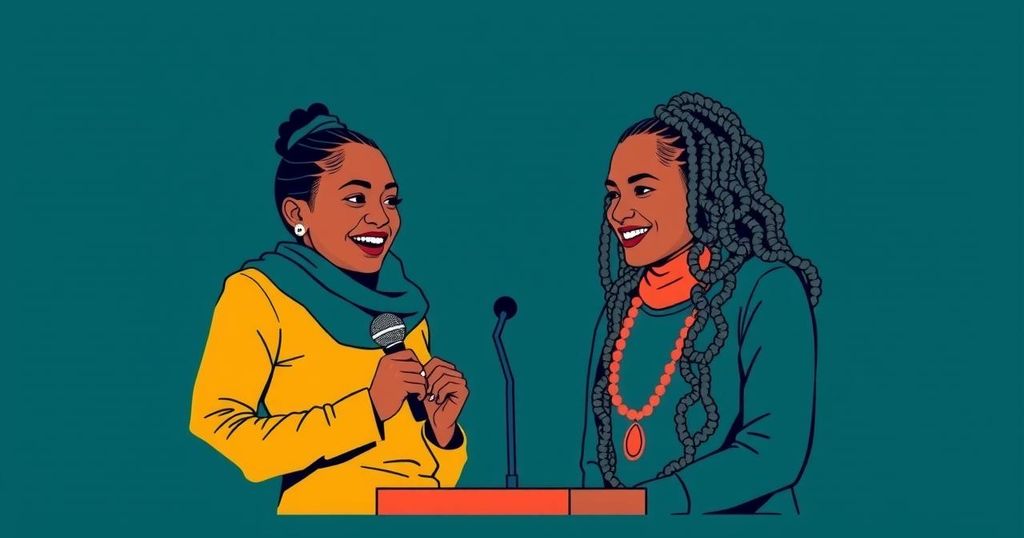Somali American Voters Shift Support Away from Democrats in 2024 Election

The 2024 presidential election saw a notable decline in support for Democrats among Somali American voters in Minnesota, with Kamala Harris experiencing significant losses in traditionally Democratic precincts. Key issues contributing to this shift included dissatisfaction with the Israel-Gaza conflict response, economic concerns, and cultural values. The findings highlight a substantial change in Somali voting behavior, necessitating a reconsideration of engagement strategies by political parties.
In the 2024 presidential election, Somali American voters in Minnesota displayed a notable shift away from the Democratic Party, marking a significant change in their voting behavior. Traditionally a Democratic stronghold, this demographic expressed discontent with the party’s response to the Israel-Gaza conflict, economic concerns, and feelings of being unrepresented. Notably, support for Democratic nominee Kamala Harris declined in key precincts with higher East African populations, with notable drops in Cedar-Riverside and Seward, where Harris’s margins fell by 14 and 12 percentage points, respectively. The backlash against Democrats was exacerbated by their handling of the Israel-Gaza war, with community activists urging voters to consider third-party candidates. Interviews with voters revealed a growing concern for economic policies perceived to be more favorable under former President Donald Trump, alongside a desire for locally relevant issues to be prioritized by Democratic leadership. Critics like Abdul Yusuf articulated that the era of automatic Democratic support from the Somali community is over. Nationally, exit polls indicated a substantial portion of Muslim voters considering alternatives to the Democratic ticket, with Green Party candidate Jill Stein capturing 53% of the Muslim vote. Trump demonstrated increased appeal among East African precincts, highlighting a protest vote rather than a strong endorsement. The Democratic strategy, including endorsements from perceived adversaries, further alienated this voter base, which feels taken for granted after years of consistent support. The complexity of this shift reflects broader cultural concerns among Somali Americans, particularly regarding family values and cultural preservation, as well as specific issues like educational content regarding gender. An increasing number of Somali Americans are aligning their values more closely with the Republican Party without fully endorsing Trump. This shift was visible with endorsements of Trump from community members who gathered to promote issues that resonate with their priorities. Overall, while the Democratic Party faced a decline in traditional support from Somali voters in Minnesota, the dynamics underscore a changing political landscape where diverse voter concerns must be adequately acknowledged and addressed for sustained engagement in future elections.
The Somali American community has historically been a reliable voting bloc for the Democratic Party, particularly in Minnesota, where they constitute a significant demographic. However, in the context of the 2024 presidential election, various socio-political factors contributed to an evident decline in support, notably regarding the responses to geopolitical issues like the Israel-Gaza conflict, as well as economic grievances. Voters expressed their desire for candidates who resonate with their cultural values and priorities rather than adhering to party lines.
In summary, the 2024 presidential election signified a critical juncture for Somali American voters in Minnesota, reflecting their growing disillusionment with the Democratic Party. Diminished support for Kamala Harris and increased receptiveness to Donald Trump highlight the necessity for political parties to actively engage with the unique concerns of this community. Acknowledging socio-cultural values and addressing pressing issues could prove vital in restoring lost support and ensuring a robust relationship with this pivotal voting bloc in future elections.
Original Source: www.startribune.com






